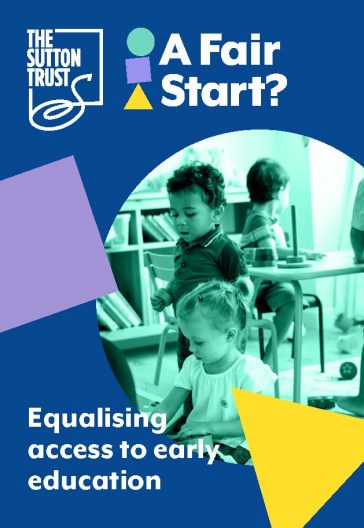Report Overview
A child’s early years play a significant role in determining their chances later on in life, including their chances of social mobility. But the poorest children are already 11 months behind their peers when they start at primary school, with efforts to close the gap stalling, and evidence that the gap has started to widen once again in recent years. Quality early years provision, targeted at those who need it most, has the potential to reverse this.
Unfortunately, early years education in England is underfunded, underappreciated and unequal. Access to quality early education is unfair, with most of the country’s poorest families locked out of the government’s flagship entitlement of 30 hours of funded early education and child-care for three- and four-year-olds. In this landmark report, the 30 hours policy is examined from a variety of different angles, with key contributions from experts in the field:
What do we know about the 30-hour entitlement? – literature review and qualitative stakeholder work
Authored by Professor Chris Pascal, Professor Tony Bertram and Dr Aline Cole-Albäck from the Centre for Research in Early Childhood
Views on the ground from parents, teachers, and providers
Authored by the Sutton Trust’s Rebecca Montacute and Erica Holt-White
Costing options for extending the 30-hour free entitlement
Authored by Christine Farquharson, Senior Research Economist at the Institute for Fiscal Studies
A shorter summary document is available here.
Find out more about our campaign to change this.
